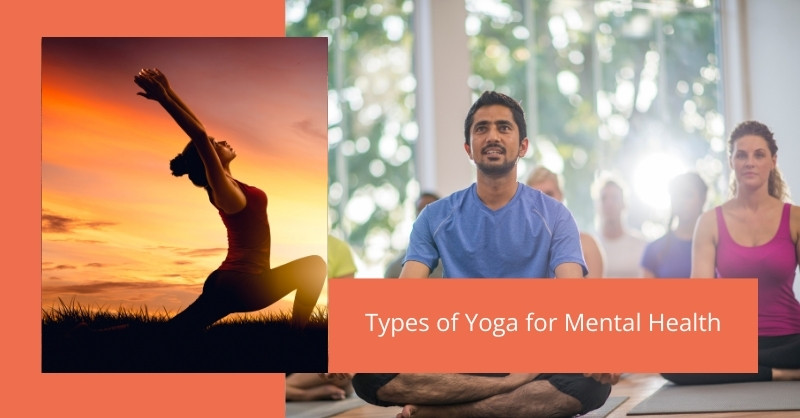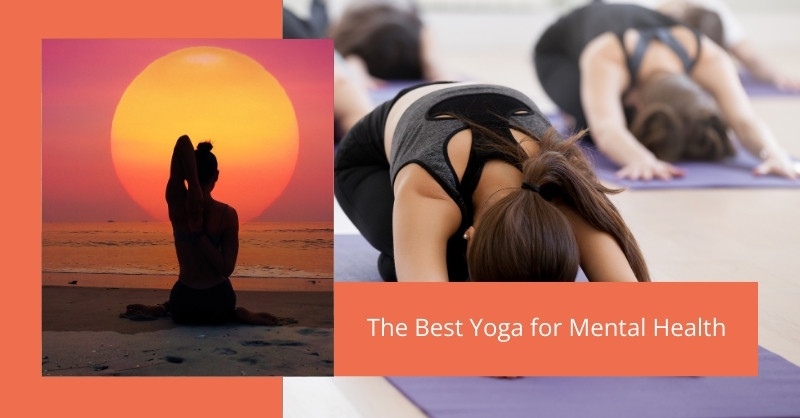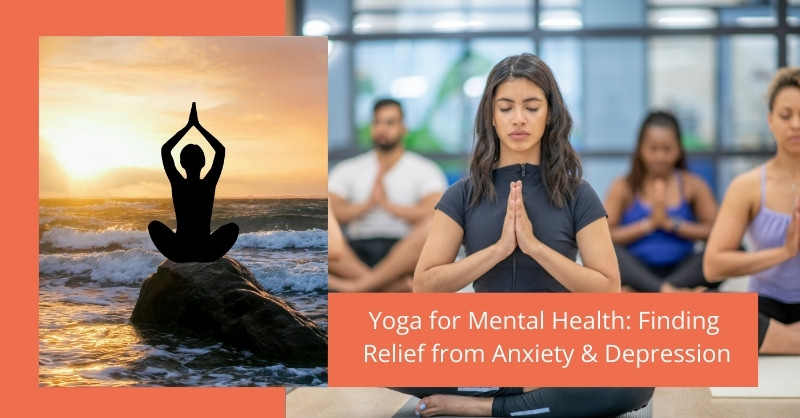Understanding Yoga for Mental Health
Yoga for mental health has emerged as a holistic approach to improving emotional well-being, reducing anxiety, and alleviating depression. Unlike traditional mental health treatments, yoga integrates physical postures, mindfulness, and breathing techniques to address the root causes of mental stress. This ancient practice combines physical and mental disciplines to foster a deeper sense of inner peace and resilience.
The mind-body connection is central to yoga’s impact on mental health. By engaging in mindful movements and deep breathing, individuals can achieve a state of relaxation that reduces the production of stress hormones like cortisol. This process not only eases symptoms of anxiety and depression but also improves overall mental clarity and focus.
Moreover, yoga encourages a shift in perspective. Through consistent practice, individuals often develop a more positive outlook on life, becoming better equipped to handle daily stressors and emotional challenges. This makes yoga an invaluable tool for fostering long-term mental well-being.
Benefits of Yoga for Mental Health
Practicing yoga for mental health benefits individuals in numerous ways:
- Reduces Anxiety: Breathing exercises and mindfulness yoga help calm the nervous system. By slowing down the breath and focusing on the present moment, yoga encourages a state of relaxation, making it particularly effective for those dealing with chronic anxiety.
- Alleviates Depression: Regular yoga practice releases endorphins, enhancing mood and reducing feelings of sadness. Yoga’s emphasis on gratitude and mindfulness can also help reframe negative thought patterns commonly associated with depression.
- Improves Focus and Clarity: Mindfulness and meditation components improve mental clarity and focus. This can be especially helpful for those who struggle with scattered thoughts or difficulty concentrating.
- Enhances Emotional Balance: Yoga fosters a sense of inner peace and emotional regulation. By promoting self-awareness, it helps individuals identify and manage their emotions more effectively.
- Boosts Self-Esteem: Yoga encourages self-acceptance and body positivity. Over time, this leads to improved self-confidence and a stronger sense of self-worth.
Types of Yoga for Mental Health

1. Restorative Yoga for Stress Relief
Restorative yoga uses gentle poses and props to promote relaxation and reduce stress. It involves holding poses for extended periods, allowing the body to fully relax and release tension. This type of yoga is particularly effective for individuals who feel overwhelmed or burnt out.
2. Hatha Yoga for Mental Health
Hatha yoga focuses on basic postures and is ideal for beginners seeking mental health benefits. This style emphasizes proper alignment and controlled breathing, making it an excellent starting point for those new to yoga. Hatha yoga helps cultivate a sense of balance and stability, both physically and mentally.
3. Vinyasa Yoga for Mental Health
Vinyasa yoga synchronizes breath with movement, making it effective for stress relief and focus. This dynamic style involves flowing sequences that build strength and flexibility while calming the mind. Vinyasa yoga is especially beneficial for those who enjoy a more active approach to stress management.
4. Kundalini Yoga for Emotional Balance
Kundalini yoga combines breath control, meditation, and chanting to enhance emotional well-being. Known as the “yoga of awareness,” it aims to awaken the energy at the base of the spine and channel it upward. Kundalini yoga is ideal for individuals seeking a deeper spiritual connection and emotional resilience.
5. Yoga Nidra for Mental Clarity
Yoga Nidra is a guided meditation practice that fosters deep relaxation and mental clarity. Often referred to as “yogic sleep,” it involves lying in a comfortable position while following verbal instructions. This practice is highly effective for reducing stress, improving sleep quality, and enhancing overall mental health.
Comparison Chart: Types of Yoga for Mental Health
| Type of Yoga | Best For | Key Benefits |
|---|---|---|
| Restorative Yoga | Stress Relief | Promotes relaxation and reduces tension |
| Hatha Yoga | Beginners | Improves focus and builds a foundation |
| Vinyasa Yoga | Stress Relief and Focus | Synchronizes movement and breath |
| Kundalini Yoga | Emotional Balance | Enhances spiritual connection |
| Yoga Nidra | Mental Clarity | Encourages deep relaxation |
Matrix Chart: Choosing the Best Yoga for Mental Health

Restorative Yoga
Vinyasa Yoga
Kundalini Yoga
Hatha Yoga
Getting Started with Yoga for Mental Health
Starting your yoga journey can feel overwhelming, but it doesn’t have to be. Begin with simple poses and mindfulness techniques, focusing on your breath and body. Many online resources and yoga classes cater specifically to beginners, providing step-by-step guidance for cultivating mental health through yoga.
Restorative and Hatha yoga are excellent choices for newcomers. These styles are gentle, slow-paced, and easy to follow. Once you feel comfortable, you can explore more dynamic practices like Vinyasa or spiritually focused styles such as Kundalini yoga. Remember, consistency is key. Even a few minutes of daily practice can lead to significant improvements in mental well-being over time.
Yoga for mental health not only addresses symptoms of anxiety and depression but also empowers individuals to take an active role in their emotional well-being. By embracing this practice, you can create a healthier, happier, and more balanced life.

Recommended Resources
- Yoga Journal – A comprehensive resource for yoga tips and insights.
- MindBodyGreen – Explore the intersection of mental health and holistic practices.
- Headspace – Learn about mindfulness and meditation techniques.



